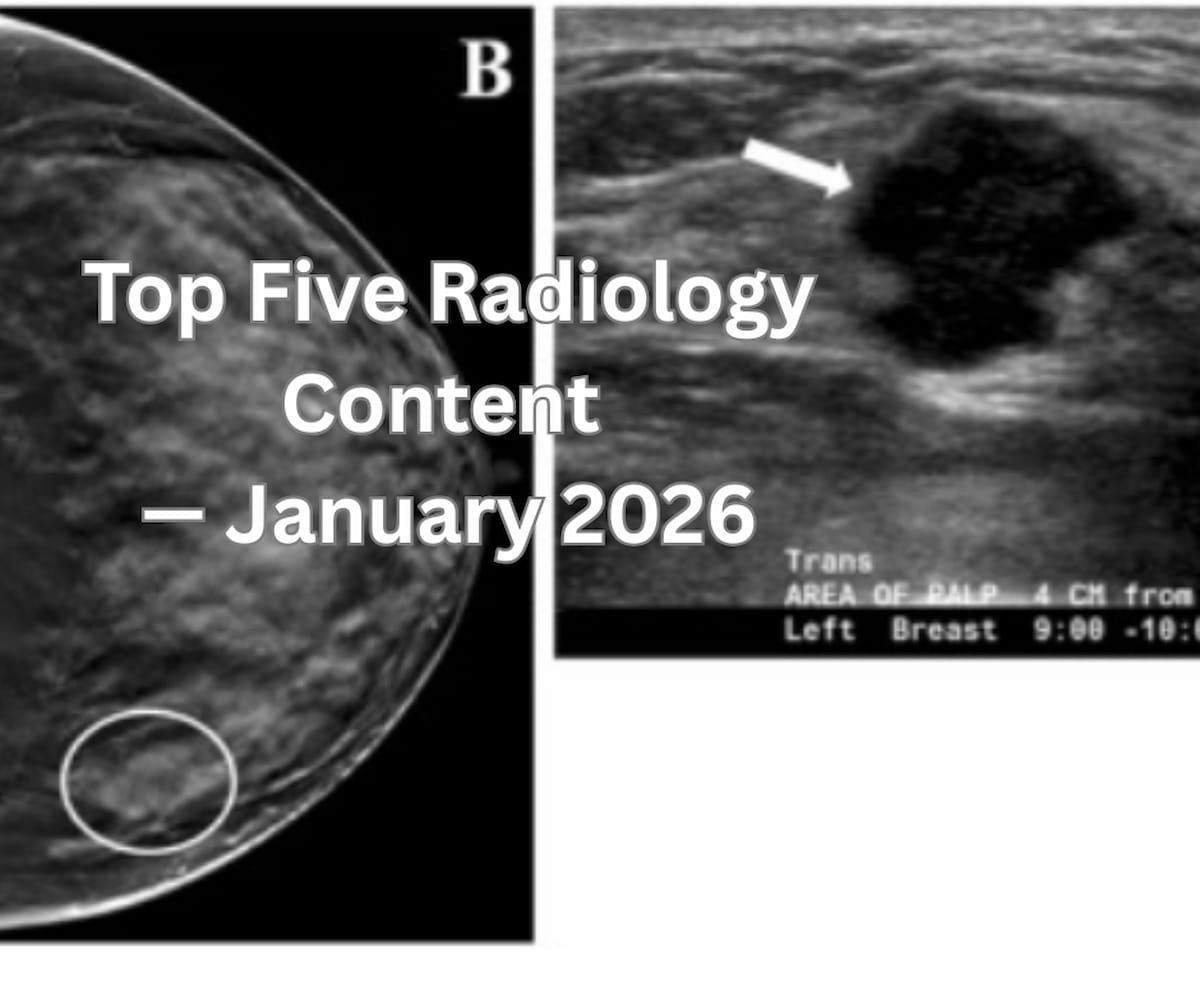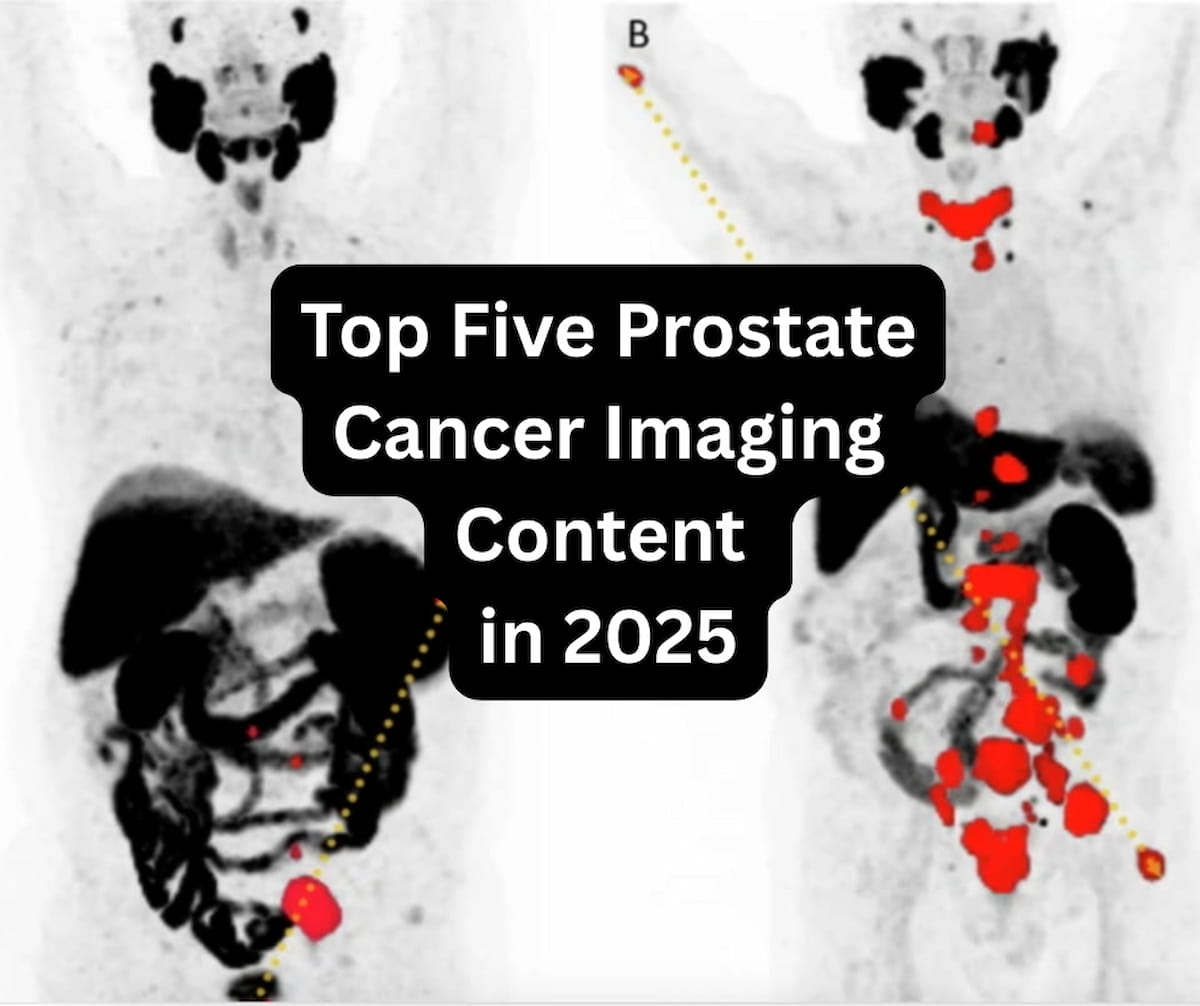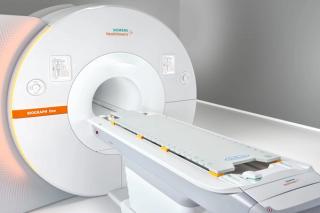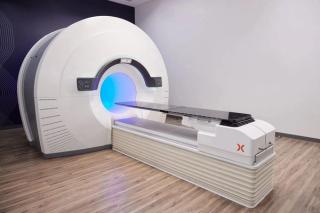
Molecular Imaging
Latest News
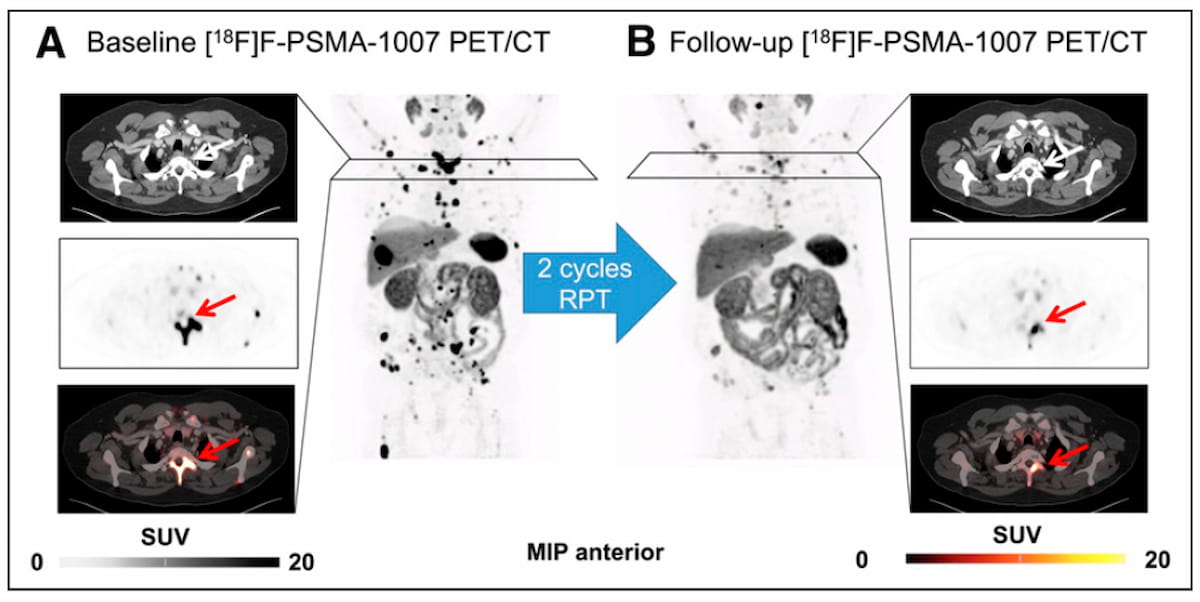
Latest Videos

Shorts




Podcasts
CME Content
More News
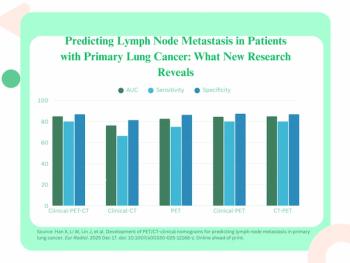
For patients with primary lung cancer, a nomogram incorporating PET, CT and clinical findings offered an 87.7 percent AUC for predicting lymph node metastasis and over a 19 percent higher sensitivity than a PET-based model for predicting small lymph node ( > 1 cm) metastasis.
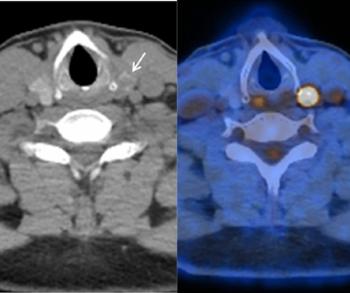
Irregular CT margin and an SUVmax > 6.25 were associated with greater than threefold and sixfold higher risks, respectively, for malignancy among patients with thyroid incidentalomas detected on PET/CT, according to new research.

Catch up on the top radiology content of the past week.

Catch up on the most well-viewed video interviews from Diagnostic Imaging in November 2025.
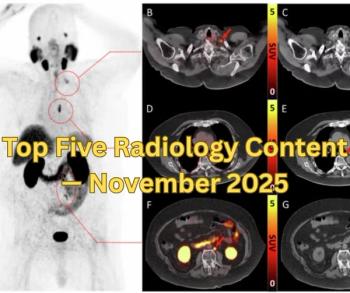
Catch up on the most-well viewed radiology content in November 2025.
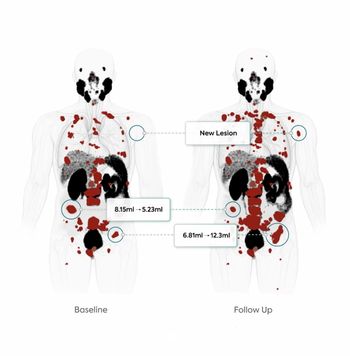
Utilizing the AI-enabled TrackPSMA to monitor the effectiveness of radioligand therapy for prostate cancer may allow more timely decisions to adjust treatment dosage or switch to a more effective modality.

Catch up on the top radiology content of the past week.

The gallium-68 radiolabeled PET imaging agent ITM-94 is currently being evaluated in a phase 1/2 trial for its utility in detecting ccRCC and differentiating indeterminate renal masses.

Catch up on the top radiology content of the past week.

In a prospective study comparing PSMA PET/CT and mpMRI for biopsy- and imaging-naïve men with suspected prostate cancer (PCa), PSMA PET/CT led to altered management in 34 percent of confirmed cases of PCa.

Catch up on the top radiology content of the past week.

In the second part of a recent interview on new molecular imaging guidelines for renal masses, Steven Rowe, M.D., discussed the off-label utility of the mitochondrial imaging agent 99mTc-sestamibi and the potential role of AI in advanced imaging for indeterminate renal masses.
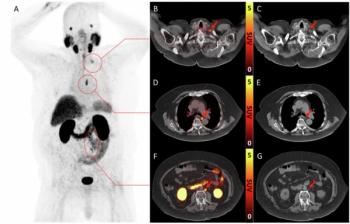
In a new review from the European Society of Urogenital Radiology (ESUR), researchers discuss the merits and limitations of PSMA PET/CT and whole-body MRI (WB-MRI) for patients with advanced prostate cancer.

In a recent interview, Steven Rowe, M.D., discussed pertinent insights from recently published molecular imaging guidelines for renal masses and the potential of 89Zr-girentuximab for clear cell renal cell carcinoma (ccRCC).
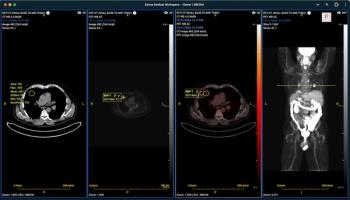
Expanded capabilities for the Sirona Advanced Imaging Suite reportedly include quantitative SUV analysis and multiplanar reconstruction for PET/CT imaging.
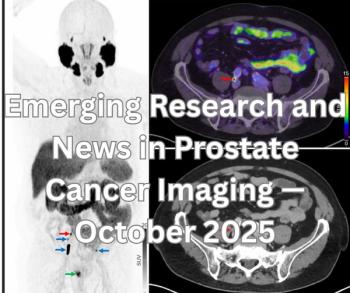
Catch up on the most-well viewed prostate cancer imaging content in October 2025.

Catch up on the top radiology content of the past week.

Use of the radiotherapeutic agent 177Lu-edotreotide (ITM-11) demonstrated significantly higher absorption in gastroenteropancreatic neuroendocrine tumors than normal organs along with a favorable safety profile, according to SPECT research recently presented at the European Association of Nuclear Medicine (EANM) conference.

Pluvicto in combination with the standard of care led to a 28 percent reduction in the risk of radiographic progression or death in patients with metastatic hormone-sensitive prostate cancer (mHSPC), according to results from the phase III PSMAddition trial presented at the European Society for Medical Oncology (ESMO) conference.

Catch up on the top radiology content of the past week.

In the second part of a recent interview, Emmanuel S. Antonarakis, M.D. discusses PSMA PET agents in current trials and cell surface proteins that may offer targeting utility in prostate cancer imaging beyond PSMA.
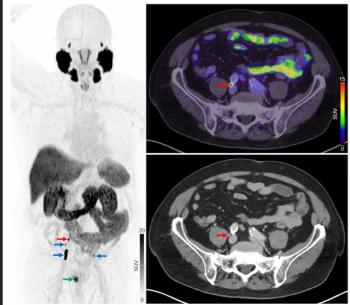
In the 160-patient study comparing 18F-PSMA 1007 PET/CT and 18F-NaF PET/CT, the use of 18F-PSMA PET/CT led to 38 patients being restaged as having more advanced prostate cancer.

Catch up on the top radiology content of the past week.

In a recent interview, Emmanuel S. Antonarakis, M.D. discussed contributing factors to the recent American Cancer Society report about rising prostate cancer incidence and offered insights about the potential role of the radioligand agent 177Lu-PSMA-I&T for patients with mCRPC.
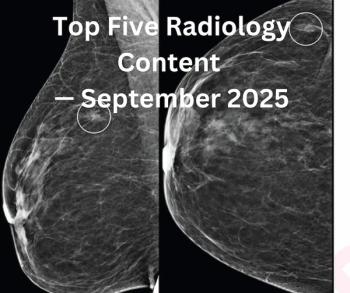
Catch up on the most-well viewed radiology content in September 2025.

